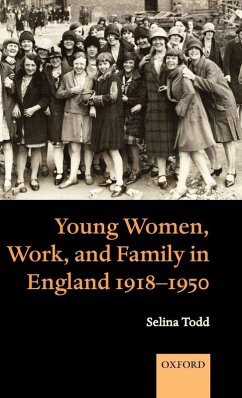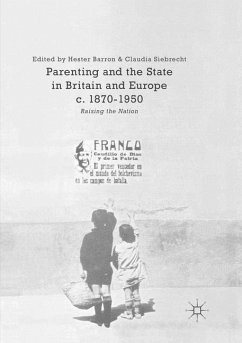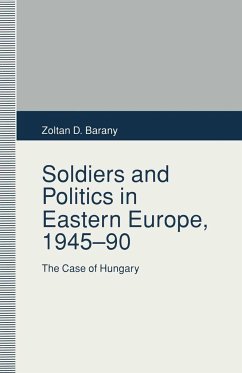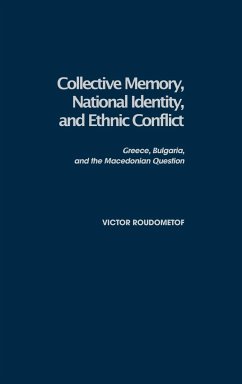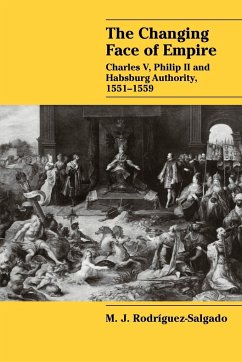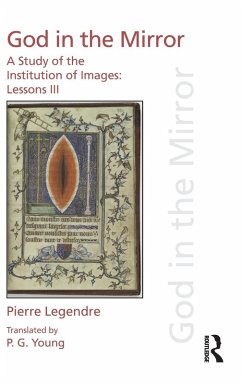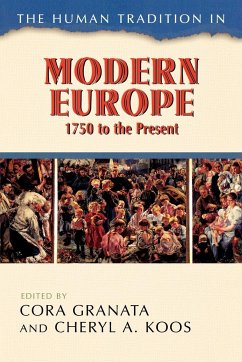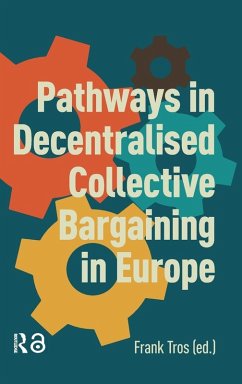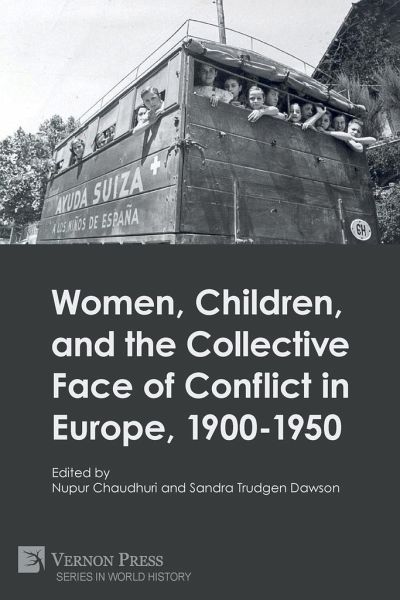
Women, Children, and the Collective Face of Conflict in Europe, 1900-1950
Versandkostenfrei!
Versandfertig in 1-2 Wochen
48,99 €
inkl. MwSt.

PAYBACK Punkte
24 °P sammeln!
Europe was in turmoil during the first half of the twentieth century. The political stability that emanated from nineteenth-century political liberalism began to break down, reaching climaxes in the Great War, the Spanish Civil War, and the Second World War. Revolutions in Russia and Spain threatened parliamentary governments, and the Armenian genocide that began in 1915 foreshadowed the systematic destruction of European Jews in the 1930s and 1940s. Dictators seized power and established authoritarian regimes that stymied democratic expression and censored the press. Much of the scholarship o...
Europe was in turmoil during the first half of the twentieth century. The political stability that emanated from nineteenth-century political liberalism began to break down, reaching climaxes in the Great War, the Spanish Civil War, and the Second World War. Revolutions in Russia and Spain threatened parliamentary governments, and the Armenian genocide that began in 1915 foreshadowed the systematic destruction of European Jews in the 1930s and 1940s. Dictators seized power and established authoritarian regimes that stymied democratic expression and censored the press. Much of the scholarship on each of the conflicts has tended to focus on the military (male) and the civilian (female) binary. Women and children experienced every conflict during this tumultuous period as civilians, consumers, victims, exiles, and combatants. As histories of women and war suggest, there are exciting new areas of research and scholarship that resist simplistic binaries. Women were not simply civilians or victims. They were actors in the minutiae of wars, revolutions, dictatorships, and genocides. Children were present in these conflicts and not invisible, as many histories suggest. They too were actors and often politicized by propagandist literature and sectarian education through their own experiences and the politics of their families. This collection seeks to complicate the child/ adult distinction and examine the experiences of women and children as lenses to view a more collective face of conflict. While the volume brings to attention conflicts in Europe, the editors acknowledge the global ramifications of the revolutions, wars, and genocides, as well as the multitude of individual experiences. This collection seeks to expand understanding of the personal as the political in European conflicts from 1900-1950. We believe the focus on women and children offers a diverse perspective on five tumultuous decades of European history.



